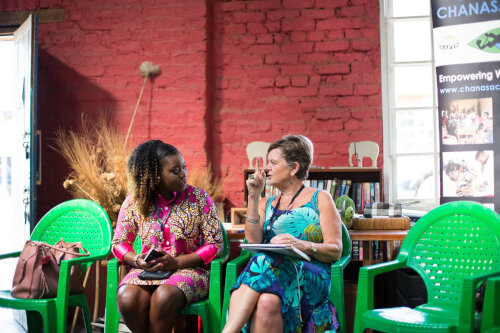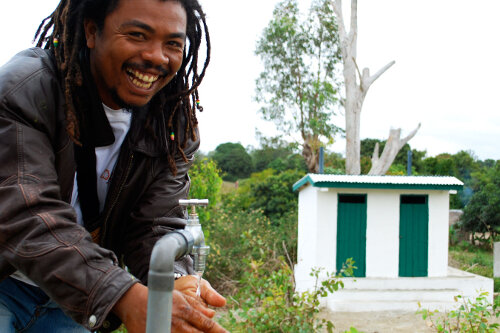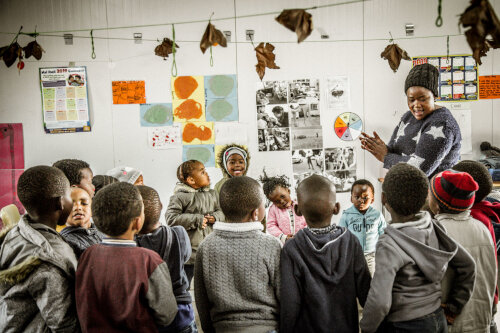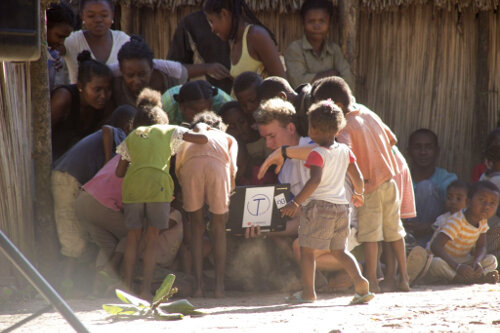The Future of…Community Tourism: Top 10 Tips for Ethical Volunteering & Community-Based Travel
/At Earth Changers, we’re specialists in positive impact tourism: We curate and help you connect to truly ethical, responsible and sustainable trips. With many years expertise in voluntourism, this goes for volunteer tourism too – for which few trips make it through a truly sustainable discerning filter.
The 10th December is Human Rights Day, which reminds us to consider our local host communities’ Human Rights when we travel as below, with our friend Claire Bennett, co-author of Learning Service: The Essential Guide to Volunteering Abroad. This is great advice for having a positive impact when you travel in all community-based tourism abroad, including volunteering.
You might also like to read: 7 Tips on How to Choose Ethical & Responsible Volunteer Tourism
We have all seen the kind of images we’re talking about: In the yard of an orphanage, children hang off a radiant visitor, scrambling to get in the frame. Or on a construction site, several muddy westerners in short-shorts and hard-hats gleefully mix cement.
Helping in a community or volunteering abroad is often portrayed as something anyone with a big heart and bit of time can get involved in for even a few hours during a holiday. But you may also have heard of volunteering being tokenistic, misguided or downright harmful - equally for just a few hours.
Helping and volunteering ethically – that is, having the intended impact on a cause and avoiding doing harm – is in fact very tricky, no matter how many useful skills you bring to the table. In fact, effectiveness requires openness, humility, and a huge amount of learning, hence the name Learning Service.
So here are ten top tips to ensure that your volunteer or community experience is responsible, does not harm, and puts learning and local rights at the heart of helping at our Places where you can volunteer such as:
Ocean conservation adventure sailing
5 DO’s…
1. Do the work that is needed
The things you might want to do may not align with what the local organisation is asking you to provide. For example, if you want to support a program that provides agriculture training in rural communities, you may prefer the chance to deliver the training rather than being stuck in an office. But you delivering that training instead of a local trained member of staff may require extra staff support, translation or experience outside of your skill set, and your “volunteering” may quickly become more of a burden than a help.
Be patient and make sure you are supporting the overall organisation’s needs, not just your own desire to feel useful in the areas that seem most interesting to you.
2. Do be a good role model
As an outsider coming into a community, you are acting as a representative of a lot of people. We know of one school which would no longer host teachers from Kansas, as they had had such a bad experience with someone from Kansas, and an organisation specifically seeking people from Finland, as they had great Finnish volunteers in the past.
Representing the wider world can be a burden, and of course you can do your best to challenge these assumptions. But deeply-ingrained ways of looking at the world are difficult to change, so it is wise to consider that your actions don’t reflect just on you but on a wider group of people.
Rather than thinking of it as a burden, think of it as motivation to be the best version of yourself, so make sure you represent yourself and your roots well.
3. Do consider the power dynamics
The carefully-balanced power dynamics of an organisation or community may be affected by the presence of an outsider. We have experienced projects where there is resentment among community members that the selected program beneficiaries are all friends or relatives of the volunteer program manager. If you can’t speak the local language well this can be difficult to discern.
Do your best to make yourself aware of the community and organisation’s power structures and systems to allow you to make informed choices about what you support and locals’ rights.
4. Do define “success” as part of wider plan
One of the most common mistakes in volunteering abroad is mis-defining “success” as “taking over full ownership of a concrete project and seeing it through to the end”. This is why so many volunteer projects involve activities like building a school or digging a well. Though taking complete ownership of a project can feel satisfying, if that project is not well integrated into a much larger system that started before you got there and will continue long after you leave, then your efforts may be “successful” for no-one but yourself.
Rather than measuring success based on personal accomplishments, view yourself as part of a larger ecosystem of change.
5. Do commit to growth
If you are committed to being effective in your help, give yourself regular opportunities to reflect on and evaluate your actions. Don’t just leave the giving and receiving of feedback until the end of an experience, when it is too late to make adjustments or put any learning into practice. Actively seek feedback from peers about how you can improve, and remain open to changing your approach.
In cultures that have a less direct communication style, feedback may be expressed through body language or a polite silence. Observe this and ask local friends for help to interpret the meaning.
Remember these cultural considerations when you want to give feedback too. Your helpful suggestions may just be interpreted as over-harsh criticisms by colleagues, so take cues from local people about how to ensure your feedback will be well received.
5 DON’TS…
6. Don’t be culturally disrespectful
Different cultures define what behaviour is appropriate differently. If you are being welcomed as a guest into a community you may need to uphold a different moral code. This is not to impose external judgement on activities you enjoy and that may be perfectly acceptable in some contexts at home, nor does it mean you need to change your own internally-held values, but it does mean that you need to respect the values of the people whose homes and communities you are in.
To avoid offending people, pay attention to local customs such as how people dress. This will likely be more conservative than what you are used to. One common complaint is that restrictive dress codes makes volunteers not “feel like themselves”, but ask yourself
‘Is it more important that I get to feel like myself, or that that the people in the local community I am entering get to feel at home in their own backyards?’
In your hometown, it might be inappropriate for a woman to walk around topless (in fact, they might even be arrested for doing so). Consider that you showing your shoulders, knees, or midriff in certain cultures might be equally shocking elsewhere.
7) Don’t waste resources
Remember that travellers and volunteers often can be more of a burden than a help – needing translation and/or training and management. Although your experience might be a very significant for you, your role is to support something much bigger than yourself. Consider what resources you are taking away from a local organisation and ensure that what you are giving back is at least as valuable as what you are taking. If it seems like your experience is being arranged in a way to cater to giving you a sense of accomplishment, ask if you can take a more supporting role in projects that are already a priority, rather than having activities created for your benefit.
8) Don’t visit or volunteer in an orphanage
Children in residential care are already extremely vulnerable and they need qualified, stable caregivers. Showing up to give love for a short time and then leaving does not help them in the long term – in fact it can exacerbate psych-social attachment disorders in the children. Furthermore, and rather disturbingly, foreign support for orphanages has been proven to incentivise child trafficking.
The vast majority of children growing up worldwide in orphanages (80-90%) have living parents. Many orphanages are run like glorified tourist attractions, and are profit-driven, with the children touted as alluring “products.” If you want to support children through your trips or volunteer work, look for organisations that strengthen families in homes and communities.
9) Don’t work outside the limits of your role there
Local projects often accord foreigners a lot of power, often based less on skills and experience than passport and skin colour. Sometimes this is a hangover from colonialism, and other times this is due to the power dynamics that come with dependency on foreign income.
Colleagues may defer to you as they would to a manager. You may be asked to provide help on topics which you don’t know anything about. There are even instances of medically unqualified people being asked to perform surgical procedures.
If you feel you are being asked to make decisions beyond your role, question it. Although not being able to perform a role might be disappointing for you or your host organisation, the consequences of you performing a role outside of your remit or skill set can be extremely damaging. Instead, ensure tasks are passed to qualified permanent members of staff who can continue being in charge after you leave.
10) Don’t forget your privilege
Consider how you make your local co-workers feel if you are complaining about their home country all the time – either about things that are a normal (or valued!) part of life, like a rice-heavy diet or squat toilets, or about things that are daily challenges for everyone, such as the lack of water or electricity. Complaining about things that are not likely to change any time soon won’t do you or the people around you any favours.
If you catch yourself complaining about the local culture, food, weather, people, or working conditions, consider what you are also learning from the experience. It may be something that you would never otherwise have the opportunity to learn.
Overall, if you do your best to engage mindfully and reflectively, you are on the way to being an effective support locally, and considerate of local Human Rights.
Learn more
Red flags to look out for and 7 Tips on How to Choose Ethical & Responsible Volunteer Tourism.
Check out the book Learning Service: The Essential Guide to Volunteering Abroad.






















